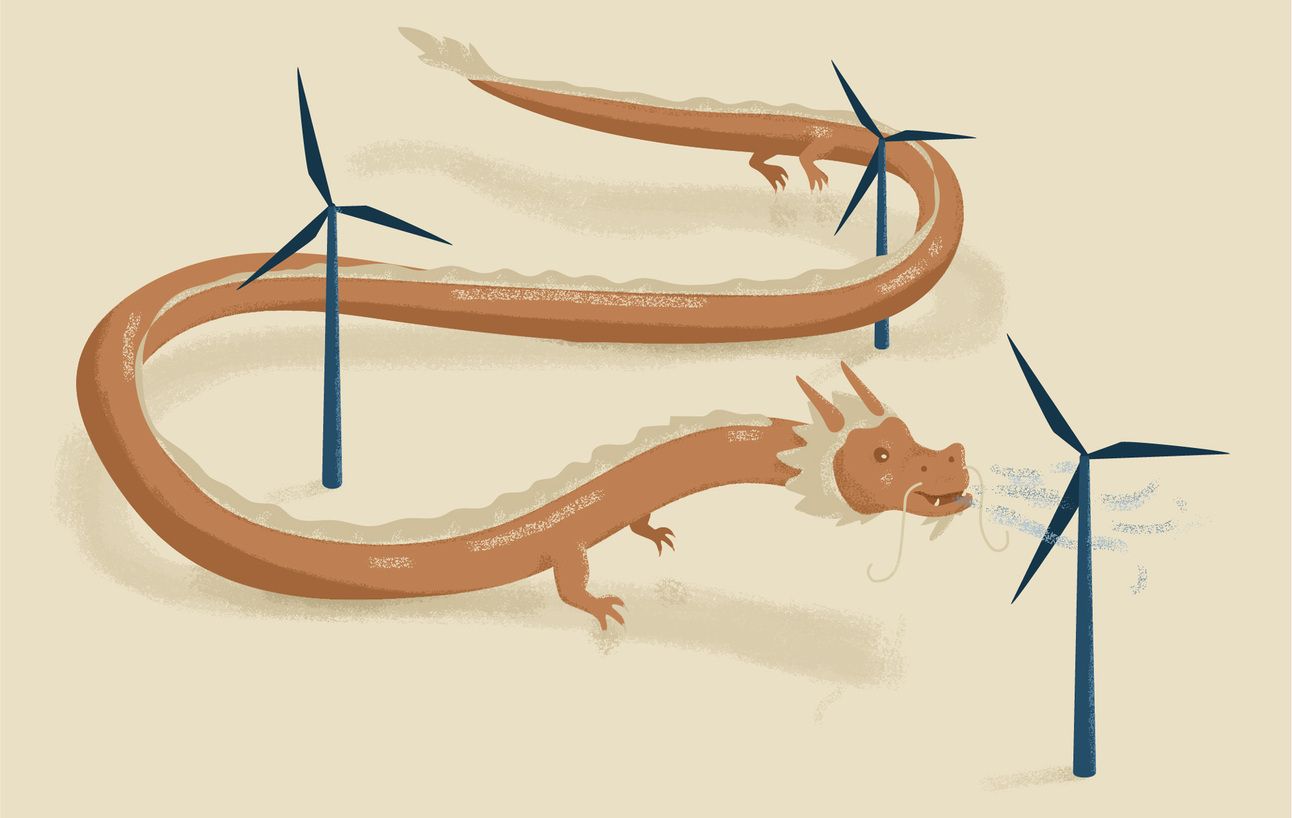- The Progress Playbook
- Posts
- Newsletter (copy 08)
Newsletter (copy 08)
Results from South Africa's four-day week trial; Inside China's renewables boom

Good morning!
Some good news to get things started:
As part of its plans to get to 82% renewable electricity by 2030, Australia will procure another 32GW of wind, solar and storage capacity via a series of six-monthly auctions.
The Progress Playbook will host its first global conference in March 2024. Get in touch if you’d like to know more, or if you’re keen to partner with us.
Know anyone else who’d be interested in signing up to this free newsletter? They can do so here.

The first trial of the four-day work week in a developing country — and the first in Africa — has shown “huge benefits” for both employees and employers, researchers say.
As many as 26 companies and 470 of their employees participated in the six-month trial in South Africa, which was overseen by 4 Day Week Global, as well as the non-profit’s local arm and researchers at Boston College and Stellenbosch Business School.
Participants included consulting firms IQbusiness and KLA, and tech company Big Beard Web Solutions, among others.
The idea behind the truncated work week — pioneered by New Zealand-based financial services group Perpetual Guardian — is that employees cut their weekly working hours by 20% but maintain full pay.
In exchange for that better work-life balance, staff must deliver at least the same output as they did previously. This can be achieved by wasting less time in unnecessary meetings, among other measures, according to the thesis.
In many cases, companies that have gone this route still operate five-day weeks, but their staff take different days off from one another.
The results of the South African trial defied scepticism, according to the researchers behind it.
Among the findings:
92% of the companies that participated say they “definitely” plan to continue with the four-day week or are considering it. Among the reported benefits were an increase in productivity, better employee retention (resignation rates were down 11%, on average), and decreased absenteeism (a 9% average decline).
More than half (51%) of the participating employees say they’d need a substantial pay hike to revert to a five-day week at their next job. And 13% say that no amount of money would get them to return to the traditional work week.
Employees reported decreased stress, burnout, and fatigue, and said they spent more time with family and exercising, among other benefits.
“The four-day week presents the rare combination of benefits for both employees and employers by enhancing wellbeing, productivity, and work organisation,” Stellenbosch Business School’s Professor Mark Smith, who co-led the research, said in a statement.
The South African results reflect similar outcomes to previous studies in other markets, albeit with some country-specific nuances, Smith added.
Tasneem Motala, a senior lecturer at Stellenbosch Business School, said there was clear evidence of improved productivity rates.
“Employees are able to produce a greater output in four days compared to what they would usually produce in five days,” Motala said, adding that participating companies redesigned key business processes, invested in software that aided productivity, and/or eliminated “non-value added work”.
Professor Juliet Schor of Boston College said an important outcome was that participants didn’t experience an increase in the “intensity” of work.
“This suggests that the work reorganisation strategy succeeded, and performance was not achieved via speedup, which is neither sustainable nor desirable.”
Yes, but: All participating companies operate in the business services sector, so it’s unclear whether the benefits would translate into other industries.
A second trial, in which The Progress Playbook will participate, will be launched in the coming weeks.
- Read the full story here.

New data releases show how China has cemented its position as the undisputed world leader in renewable energy installations and electric vehicle sales.
Why it matters: The world cannot avoid the worst impacts of climate change unless the biggest emitters of greenhouse gases — China and the US — make rapid shifts to clean energy.
The latest: China is on track to install a staggering 230 gigawatts (GW) of wind and solar this year. That’s more than double the new capacity being added in the US and Europe, according to a report by Wood Mackenzie.
This estimate follows a new analysis showing that China’s carbon dioxide emissions will most likely fall in 2024 and enter a long-term structural decline thereafter, thanks to the country’s unrivalled adoption of clean energy.
As of October, China has 536GW of installed solar PV capacity and 404GW of wind, per the energy bureau.
- Read the full story about how China managed this feat here.

The Western Australian government will provide low-income households with free electricity between 9am and 3pm each day – by redistributing excess solar from the roofs of wealthier homes.
The state, like others in the country and further abroad, is working out how to deal with the sharp decline in demand for electricity from the grid during the middle of the day as more homes and businesses install solar panels on their roofs.
- Read the full story here.
Other articles you might find interesting:
Have any tips, ideas or feedback for us?
Please contact [email protected].
Follow The Progress Playbook on social media:




Copyright (C) 2023, The Progress Playbook. All rights reserved.Was this email forwarded to you? Sign up here to subscribe yourself.Want to change how you receive these emails?You can unsubscribe
Reply